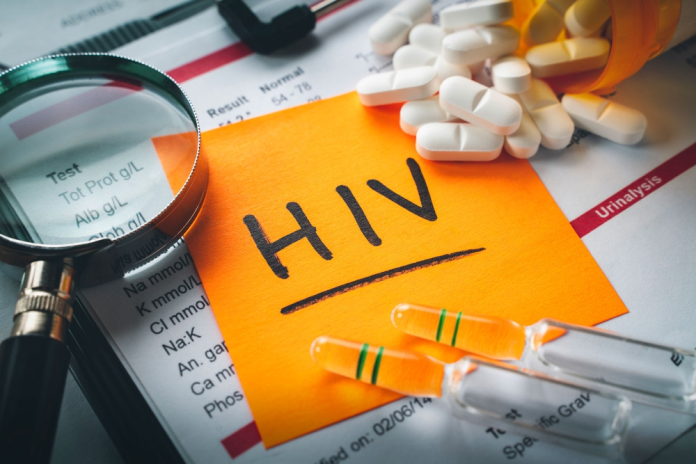Globally, an estimated 4,000 adolescent girls and young women become infected with HIV each week, with sub-Saharan Africa accounting for more than 60% of these new infections, according to the World Health Organization (WHO).
In this region, young women are vulnerable due to a combination of structural inequalities, limited access to health services, and biological risk factors.
While existing HIV prevention methods, such as daily oral PrEP (pre-exposure prophylaxis), have proven effective, maintaining strict adherence is a barrier for many young people. A new long-acting injectable drug, lenacapavir, may soon offer a more convenient alternative.
New findings from large-scale clinical trials evaluating lenacapavir’s effectiveness were presented on July 17 at the International AIDS Society Conference on HIV Science in Kigali.
Here are 10 key things to understand about the drug;
1. Two shots a year
Lenacapavir is a long-acting injectable drug taken every six months to prevent HIV infection in people at high risk. Unlike oral PrEP (such as truvada), which must be taken daily, lenacapavir offers a convenient alternative that makes it easier for people to stick to their HIV prevention routine.
2. Zero infections in young women during trial
In a Phase III study known as PURPOSE 1, conducted in South Africa and Uganda, more than 5,300 participants were enrolled, most of them adolescent girls and young women aged 16 to 25. The study recorded zero HIV infections among those who received lenacapavir.
“We observed zero new HIV infections in the lenacapavir group, which demonstrates how effective this option is for young women, who remain at high risk,” said Dr. Katherine Gill, a senior clinician and researcher at the Desmond Tutu HIV Foundation in South Africa.
3. Discreet and convenient
The PURPOSE 1 trial tested three different HIV prevention methods: Lenacapavir, Truvada, and Descovy. These different treatment groups, known as “arms” in clinical research, allowed scientists to compare how each option performed. While all three were found to be effective, many participants said they preferred lenacapavir because it was more discreet and easier to manage.
“Young women in the study told us they preferred an injection over a daily pill because they don’t have to explain it to their family or partners,” said Dr. Gill said.
4. Pregnant and breastfeeding individuals were included
Nearly 500 pregnant and breastfeeding women took part in the PURPOSE 1 trial, an inclusion given that such groups are often left out of HIV prevention research. Their participation allowed researchers to assess how safe and effective lenacapavir is for women during pregnancy and lactation.
“It was essential to include pregnant and breastfeeding women safely. The findings are more relevant for real-world implementation, especially in high-risk communities. The trial’s outcomes help address long-standing gaps in HIV prevention for women during serious stages of maternal health, where the risk of HIV acquisition is high,” said Dr. Lillian Brown, the Director of Clinical Development and HIV Prevention at Gilead Sciences, a global biopharmaceutical company.
5. Confirmed effective in other groups too
A related study, PURPOSE 2, was conducted in Argentina, Brazil, Mexico, Peru, South Africa, and the United States. It enrolled men who have sex with men, transgender women, and gender-diverse people. Lenacapavir showed high levels of protection across all groups studied.
6. Mild side effects
Both trials reported minimal side effects. The most common issues were mild, such as pain or swelling at the injection site. No serious adverse effects were reported.
“There were no main safety concerns. This gives us confidence as we move toward broader approval and rollout,” said Dr. Linda-Gail Bekker, the Director of Desmond Tutu HIV Centre.
7. Not for everyone, TB drug interaction limits use
Lenacapavir cannot be taken with tuberculosis medications that contain rifampicin, which limits its use in settings where TB and HIV are both common.
“This is a serious concern in many African countries, however, it’s good that lenacapavir works safely with hormonal contraceptives, which matters for women,” said Dr. Linda-Gail Bekker, the Director of Desmond Tutu HIV Centre.
8. More injectable options are in development
Researchers are working on other long-acting HIV prevention drugs to provide more choices. One such effort involves combining lenacapavir with another drug called islatravir. This combination, studied in the IQ4 trials, could be given every four months, offering more flexibility than the twice-yearly lenacapavir injections alone.
Dr. Bekker said: “Early studies suggest that combining long-acting drugs may offer greater convenience and could improve how people use HIV prevention. The goal is to develop options that fit different lifestyles and preferences, making prevention easier and more accessible. This also aligns with ongoing efforts to include diverse groups in research and ensure these new drugs are safe and effective for all, including pregnant and breastfeeding women.”
9. Built trust before testing
The trials were developed in close collaboration with young people, healthcare workers, and community advocates in the areas where the research was conducted. Their involvement helped shape how the studies were introduced and explained to participants.
“You don’t just arrive and start recruiting participants, these studies were built with the communities at every step, by including local voices early on, researchers were able to address concerns, encourage open conversations, and increase trust, especially among young women and other key populations often left out of clinical research. This helped ensure high enrollment and strong retention throughout the trial,” Gill said.
10. Rollout planning underway
At the IAS Conference in Kigali, the World Health Organization released new guidelines recommending lenacapavir as a long-acting HIV prevention option. Dr. Tedros Adhanom Ghebreyesus, the WHO Director-General, described the drug as an important advance. He said, “While an HIV vaccine is not yet available, lenacapavir provides a valuable alternative.”
Gilead Sciences, the manufacturer of lenacapavir, has committed to ensuring equitable access, including helping with generic drug production. The drug is expected to be included in national HIV prevention programmes in South Africa and Uganda by late 2025. The exact prices of the drug are not disclosed publicly.






